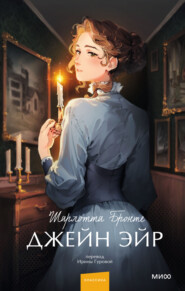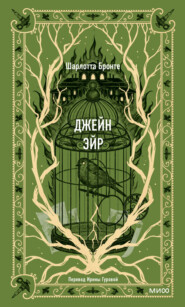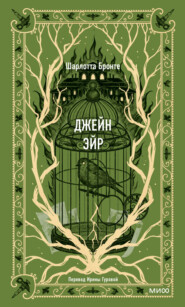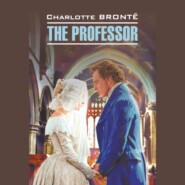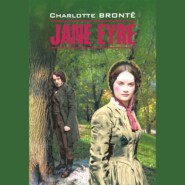По всем вопросам обращайтесь на: info@litportal.ru
(©) 2003-2025.
✖
Jane Eyre
Настройки чтения
Размер шрифта
Высота строк
Поля
Replies rose smooth and prompt now: -
“You must enclose the advertisement and the money to pay for it under a cover directed to the editor of the Herald; you must put it, the first opportunity you have, into the post at Lowton; answers must be addressed to J.E., at the post-office there; you can go and inquire in about a week after you send your letter, if any are come, and act accordingly.”
This scheme I went over twice, thrice; it was then digested in my mind; I had it in a clear practical form: I felt satisfied, and fell asleep.
With earliest day, I was up: I had my advertisement written, enclosed, and directed before the bell rang to rouse the school; it ran thus: -
“A young lady accustomed to tuition” (had I not been a teacher two years?) “is desirous of meeting with a situation in a private family where the children are under fourteen (I thought that as I was barely eighteen, it would not do to undertake the guidance of pupils nearer my own age). She is qualified to teach the usual branches of a good English education, together with French, Drawing, and Music” (in those days, reader, this now narrow catalogue of accomplishments, would have been held tolerably comprehensive). “Address, J.E., Post-office, Lowton, __shire.”
This document remained locked in my drawer all day: after tea, I asked leave of the new superintendent to go to Lowton, in order to perform some small commissions for myself and one or two of my fellow-teachers; permission was readily granted; I went. It was a walk of two miles, and the evening was wet, but the days were still long; I visited a shop or two, slipped the letter into the post-office, and came back through heavy rain, with streaming garments, but with a relieved heart.
The succeeding week seemed long: it came to an end at last, however, like all sublunary things, and once more, towards the close of a pleasant autumn day, I found myself afoot on the road to Lowton. A picturesque track it was, by the way; lying along the side of the beck and through the sweetest curves of the dale: but that day I thought more of the letters, that might or might not be awaiting me at the little burgh whither I was bound, than of the charms of lea and water.
My ostensible errand on this occasion was to get measured for a pair of shoes; so I discharged that business first, and when it was done, I stepped across the clean and quiet little street from the shoemaker's to the post-office: it was kept by an old dame, who wore horn spectacles on her nose, and black mittens on her hands.
“Are there any letters for J.E.?” I asked.
She peered at me over her spectacles, and then she opened a drawer and fumbled among its contents for a long time, so long that my hopes began to falter. At last, having held a document before her glasses for nearly five minutes, she presented it across the counter, accompanying the act by another inquisitive and mistrustful glance – it was for J.E.
“Is there only one?” I demanded.
“There are no more,” said she; and I put it in my pocket and turned my face homeward: I could not open it then; rules obliged me to be back by eight, and it was already half-past seven.
Various duties awaited me on my arrival. I had to sit with the girls during their hour of study; then it was my turn to read prayers; to see them to bed: afterwards I supped with the other teachers. Even when we finally retired for the night, the inevitable Miss Gryce was still my companion: we had only a short end of candle in our candlestick, and I dreaded lest she should talk till it was all burnt out; fortunately, however, the heavy supper she had eaten produced a soporific effect: she was already snoring before I had finished undressing. There still remained an inch of candle: I now took out my letter; the seal was an initial F.; I broke it; the contents were brief.
“If J.E., who advertised in the __shire Herald of last Thursday, possesses the acquirements mentioned, and if she is in a position to give satisfactory references as to character and competency, a situation can be offered her where there is but one pupil, a little girl, under ten years of age; and where the salary is thirty pounds per annum. J.E. is requested to send references, name, address, and all particulars to the direction: -
“Mrs. Fairfax, Thornfield, near Millcote, __shire.”
I examined the document long: the writing was old-fashioned and rather uncertain, like that of an elderly lady. This circumstance was satisfactory: a private fear had haunted me, that in thus acting for myself, and by my own guidance, I ran the risk of getting into some scrape; and, above all things, I wished the result of my endeavours to be respectable, proper, en règle. I now felt that an elderly lady was no bad ingredient in the business I had on hand. Mrs. Fairfax! I saw her in a black gown and widow's cap; frigid, perhaps, but not uncivil: a model of elderly English respectability. Thornfield! that, doubtless, was the name of her house: a neat orderly spot, I was sure; though I failed in my efforts to conceive a correct plan of the premises. Millcote, __shire; I brushed up my recollections of the map of England, yes, I saw it; both the shire and the town. __shire was seventy miles nearer London than the remote county where I now resided: that was a recommendation to me. I longed to go where there was life and movement: Millcote was a large manufacturing town on the banks of the A__; a busy place enough, doubtless: so much the better; it would be a complete change at least. Not that my fancy was much captivated by the idea of long chimneys and clouds of smoke – “but,” I argued, “Thornfield will, probably, be a good way from the town.”
Here the socket of the candle dropped, and the wick went out.
Next day new steps were to be taken; my plans could no longer be confined to my own breast; I must impart them in order to achieve their success. Having sought and obtained an audience of the superintendent during the noontide recreation, I told her I had a prospect of getting a new situation where the salary would be double what I now received (for at Lowood I only got £15 per annum); and requested she would break the matter for me to Mr. Brocklehurst, or some of the committee, and ascertain whether they would permit me to mention them as references. She obligingly consented to act as mediatrix in the matter. The next day she laid the affair before Mr. Brocklehurst, who said that Mrs. Reed must be written to, as she was my natural guardian. A note was accordingly addressed to that lady, who returned for answer, that “I might do as I pleased: she had long relinquished all interference in my affairs.” This note went the round of the committee, and at last, after what appeared to me most tedious delay, formal leave was given me to better my condition if I could; and an assurance added, that as I had always conducted myself well, both as teacher and pupil, at Lowood, a testimonial of character and capacity, signed by the inspectors of that institution, should forthwith be furnished me.
This testimonial I accordingly received in about a month, forwarded a copy of it to Mrs. Fairfax, and got that lady's reply, stating that she was satisfied, and fixing that day fortnight as the period for my assuming the post of governess in her house.
I now busied myself in preparations: the fortnight passed rapidly. I had not a very large wardrobe, though it was adequate to my wants; and the last day sufficed to pack my trunk, – the same I had brought with me eight years ago from Gateshead.
The box was corded, the card nailed on. In half-an-hour the carrier was to call for it to take it to Lowton, whither I myself was to repair at an early hour the next morning to meet the coach. I had brushed my black stuff travelling-dress, prepared my bonnet, gloves, and muff; sought in all my drawers to see that no article was left behind; and now having nothing more to do, I sat down and tried to rest. I could not; though I had been on foot all day, I could not now repose an instant; I was too much excited. A phase of my life was closing to-night, a new one opening to-morrow: impossible to slumber in the interval; I must watch feverishly while the change was being accomplished.
“Miss,” said a servant who met me in the lobby, where I was wandering like a troubled spirit, “a person below wishes to see you.”
“The carrier, no doubt,” I thought, and ran downstairs without inquiry. I was passing the back-parlour or teachers' sitting-room, the door of which was half open, to go to the kitchen, when some one ran out -
“It's her, I am sure! – I could have told her anywhere!” cried the individual who stopped my progress and took my hand.
I looked: I saw a woman attired like a well-dressed servant, matronly, yet still young; very good-looking, with black hair and eyes, and lively complexion.
“Well, who is it?” she asked, in a voice and with a smile I half recognised; “you've not quite forgotten me, I think, Miss Jane?”
In another second I was embracing and kissing her rapturously: “Bessie! Bessie! Bessie!” that was all I said; whereat she half laughed, half cried, and we both went into the parlour. By the fire stood a little fellow of three years old, in plaid frock and trousers.
“That is my little boy,” said Bessie directly.
“Then you are married, Bessie?”
“Yes; nearly five years since to Robert Leaven, the coachman; and I've a little girl besides Bobby there, that I've christened Jane.”
“And you don't live at Gateshead?”
“I live at the lodge: the old porter has left.”
“Well, and how do they all get on? Tell me everything about them, Bessie: but sit down first; and, Bobby, come and sit on my knee, will you?” but Bobby preferred sidling over to his mother.
“You're not grown so very tall, Miss Jane, nor so very stout,” continued Mrs. Leaven. “I dare say they've not kept you too well at school: Miss Reed is the head and shoulders taller than you are; and Miss Georgiana would make two of you in breadth.”
“Georgiana is handsome, I suppose, Bessie?”
“Very. She went up to London last winter with her mama, and there everybody admired her, and a young lord fell in love with her: but his relations were against the match; and – what do you think? – he and Miss Georgiana made it up to run away; but they were found out and stopped. It was Miss Reed that found them out: I believe she was envious; and now she and her sister lead a cat and dog life together; they are always quarrelling -”
“Well, and what of John Reed?”
“Oh, he is not doing so well as his mama could wish. He went to college, and he got – plucked, I think they call it: and then his uncles wanted him to be a barrister, and study the law: but he is such a dissipated young man, they will never make much of him, I think.”
“What does he look like?”
“He is very tall: some people call him a fine-looking young man; but he has such thick lips.”
“And Mrs. Reed?”
“Missis looks stout and well enough in the face, but I think she's not quite easy in her mind: Mr. John's conduct does not please her – he spends a deal of money.”
“Did she send you here, Bessie?”
“No, indeed: but I have long wanted to see you, and when I heard that there had been a letter from you, and that you were going to another part of the country, I thought I'd just set off, and get a look at you before you were quite out of my reach.”
“I am afraid you are disappointed in me, Bessie.” I said this laughing: I perceived that Bessie's glance, though it expressed regard, did in no shape denote admiration.
“No, Miss Jane, not exactly: you are genteel enough; you look like a lady, and it is as much as ever I expected of you: you were no beauty as a child.”
I smiled at Bessie's frank answer: I felt that it was correct, but I confess I was not quite indifferent to its import: at eighteen most people wish to please, and the conviction that they have not an exterior likely to second that desire brings anything but gratification.
“I dare say you are clever, though,” continued Bessie, by way of solace. “What can you do? Can you play on the piano?”
“A little.”
There was one in the room; Bessie went and opened it, and then asked me to sit down and give her a tune: I played a waltz or two, and she was charmed.







